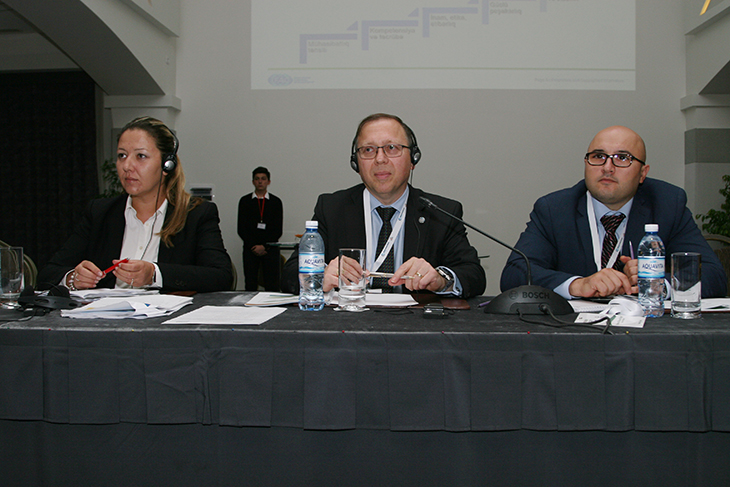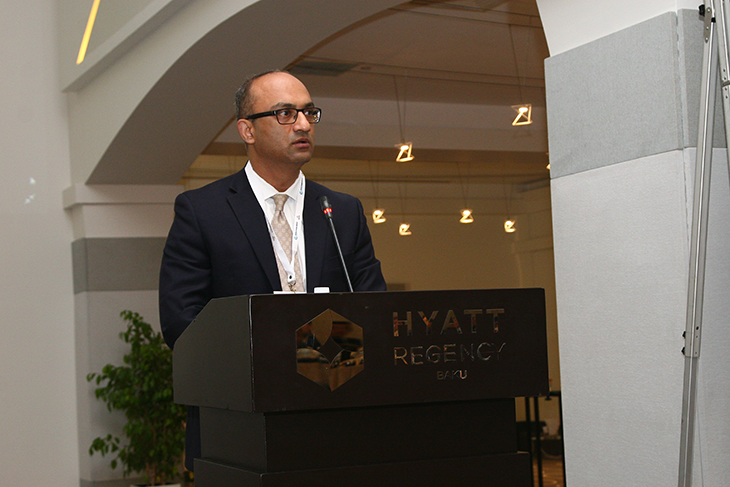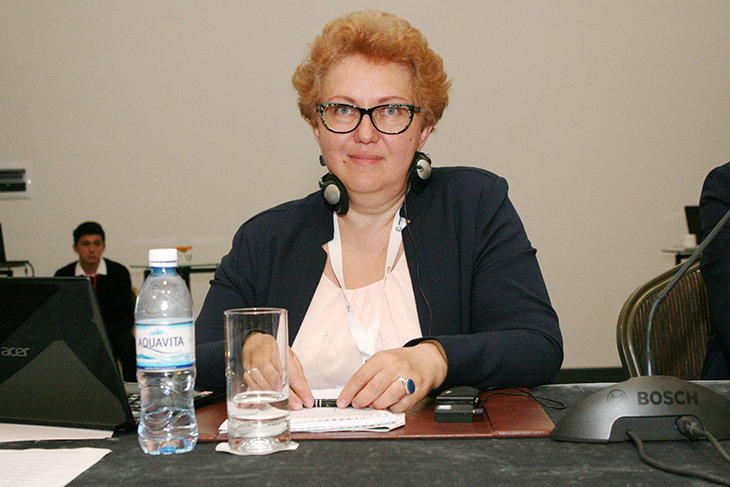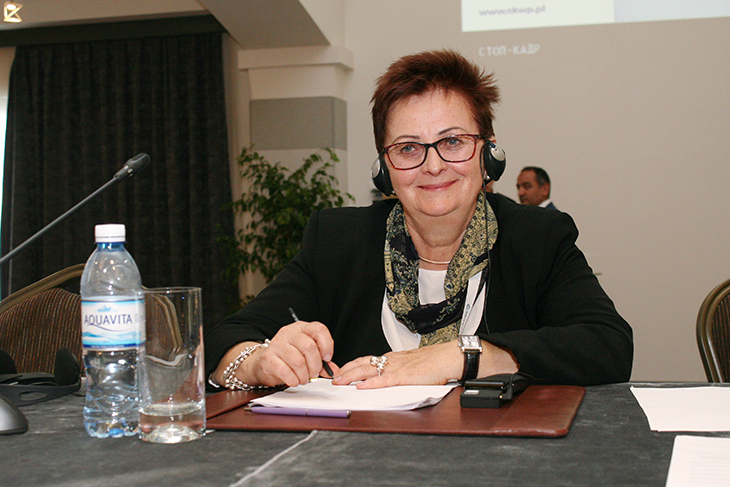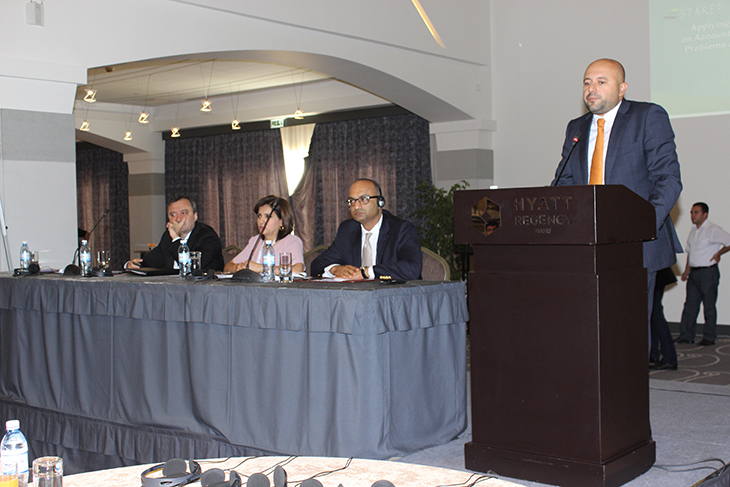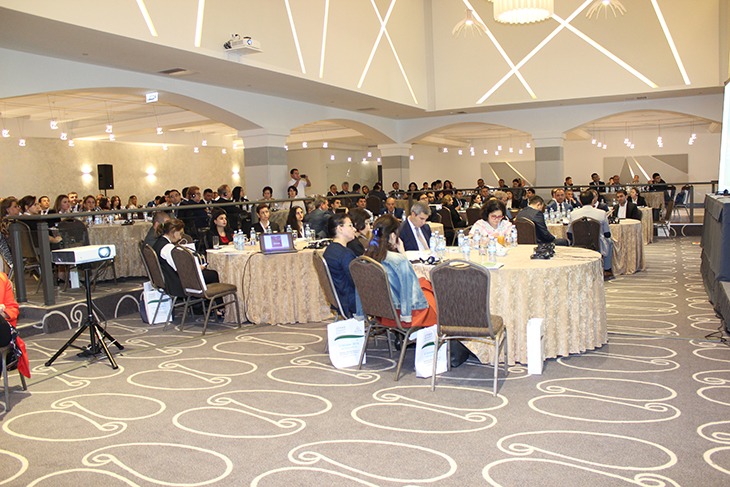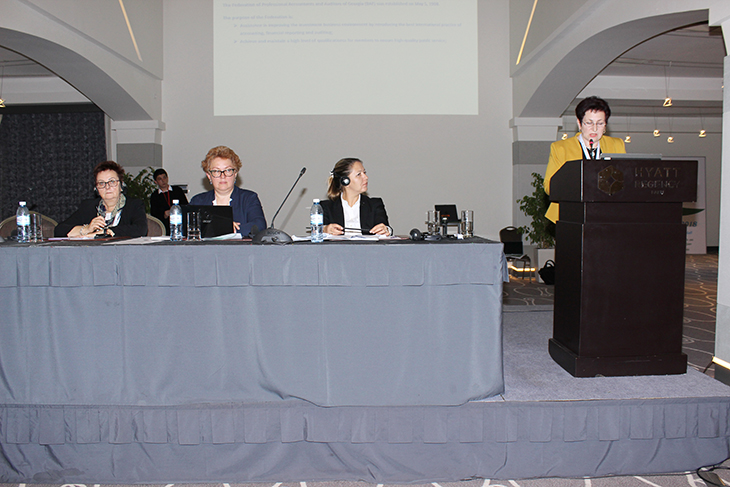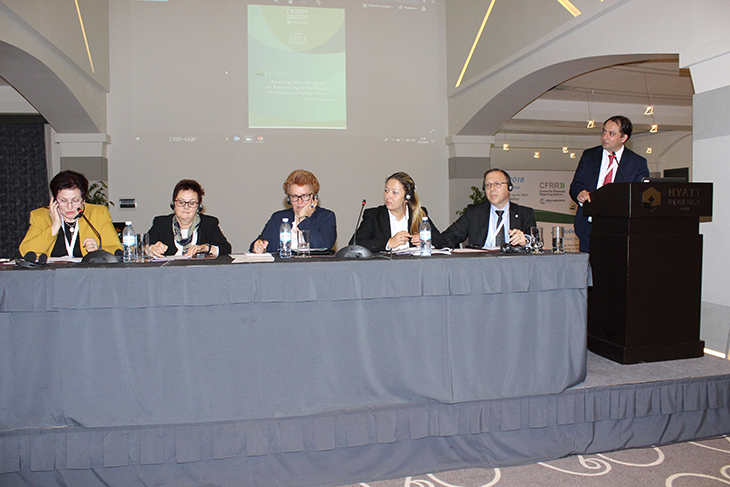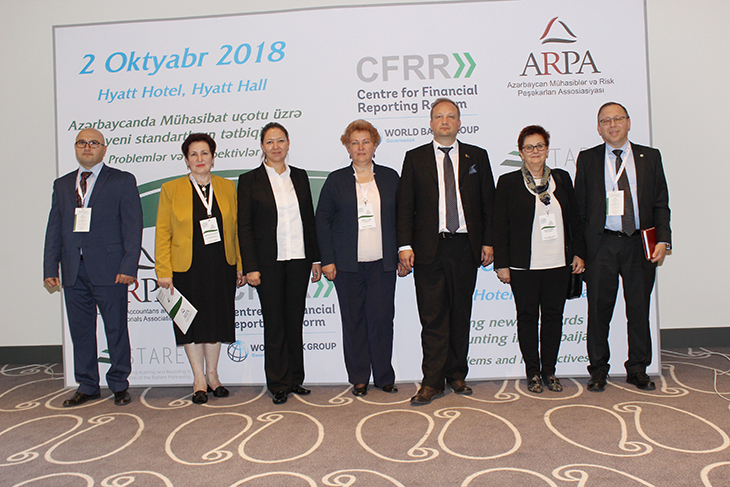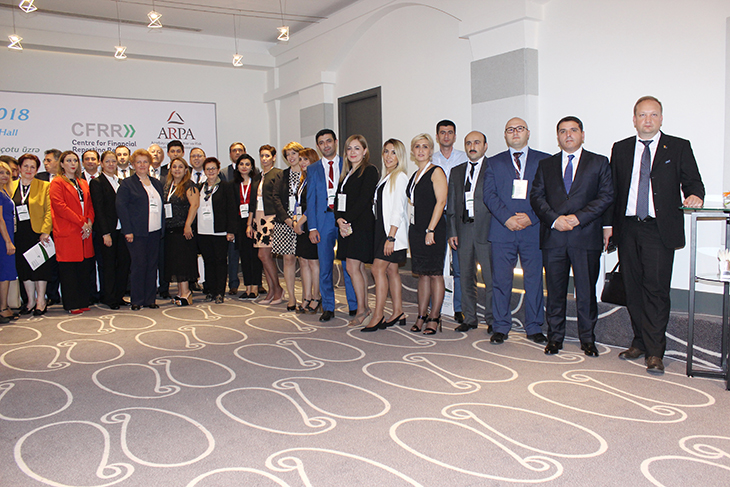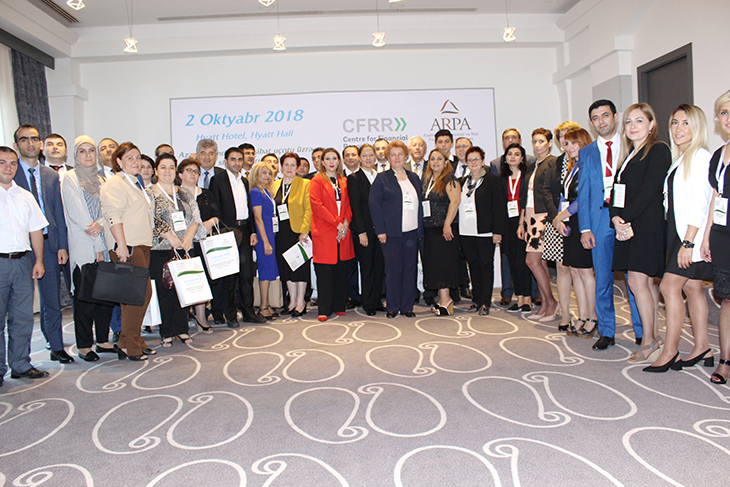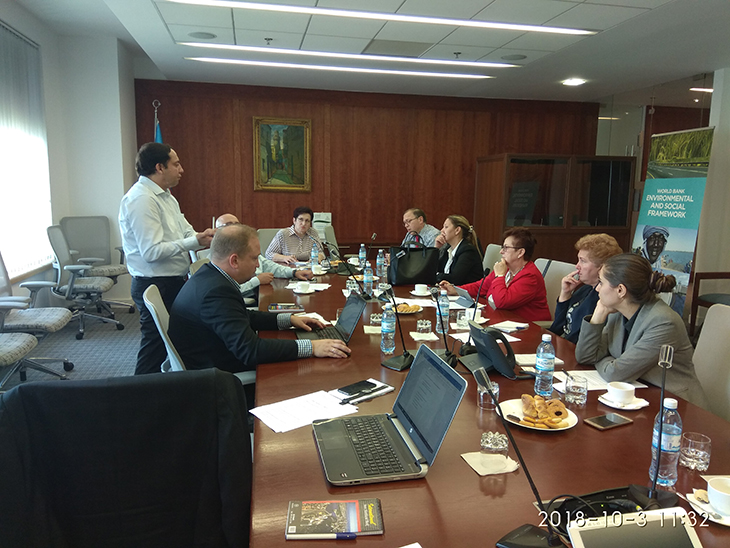The conference on October 2nd featured speakers from the World Bank, the Professional Accountancy Organization Development Committee of the International Federation of Accountants (IFAC), as well as representatives from Professional Accountancy Organizations (PAOs) in Poland, the Kyrgyz Republic, and Georgia. The discussions focused on changes in Accounting Law, how to achieve smooth transition by learning good international practices and overcoming challenges, as well as the implications to the accounting profession.
Naveed Hassan Naqvi, Country Manager, World Bank opened the event and emphasized the importance of corporate financial reporting reforms to improve transparency, attract international investments, and foster economic growth in the coming years. Rufat Mahmud, Chairman of the Board of Directors, Azerbaijan Accountants and Risk Professionals Association (ARPA) welcomed the participants to the conference and highlighted the significance of the coming changes to the accounting profession.
Changes in Accounting Law
Firuze Abdullayeva, Head of the Accounting Policy Department at the Ministry of Finance presented the changes to the Accounting Law, which will result in the former National Accounting Standards for Commercial Organizations (NASCO), becoming obsolete as they are replaced by International Financial Reporting Standard (IFRS), or IFRS for SMEs, based on the size of the reporting entities. Professional Accountants, including Chief Financial Officers at Public Interest Entities, will be required to be certified by completing a professional examination.
Representatives of the largest accounting firms in Azerbaijan presented the latest changes to IFRS, and provided some advice to first-time adopters, highlighting the need for long-term planning, adequate resources, and support from top management. Suleyman Gasimov, Vice-President for Economic issues at the State Oil Company of the Azerbaijan Republic (SOCAR) shared his experience with IFRS adoption, challenges of implementation, and the benefits which ensued.
The participants also learned about the role of Higher Education Institutions in preparing Professional Accountants in relation to changes in the law. Vusala Gurbanova, Leading Adviser of Science, Higher, and Secondary Professional Education Department at the Ministry of Education explained the process of curriculum revision under way, and the increased flexibility it provides to universities to adapt the accounting degree programs to incorporate international standards and meet the needs of the Public and Private sectors in Azerbaijan.
A rich series of exchanges ensued which highlighted that continued efforts will be required to raise awareness of the coming changes amongst a broad range of stakeholders, as well as to support the coming regulatory changes.
Assisting regulators and PAOs in light of regulatory changes
On October 3rd, the World Bank hosted a roundtable meeting aimed at assisting regulators and Professional Accountancy Organizations (PAOs) address the coming regulatory changes.
In addition to representatives from the Ministry of Finance, ARPA, and the World Bank, participants included:
- Jelena Misita, member of the Professional Accountancy Organization Development Committee (PAODC- IFAC).
- Rusadan Zhorzholiani, Chairperson, Georgian Federation of Professional Accountants and Auditors.
- Valeria Getman, Executive Director, Union of Accountants and Auditors of Krygyz Republic.
- Anna Karmanska, Professor at the Warsaw School of Economics and Chair of Ethics Commission, Accountants Association in Poland.
- Vladimir Zharinov, Chief Executive Officer (Russia), Eurasian Institute of Certified Public Accountants.
Some of the topics discussed included the several important dimensions of being a PAO, ranging from enforcement of a Code of Ethics, the value of a certification program, the support for and assistance with the implementation of international accounting and auditing standards, as well as quality assurance of accounting and auditing services. The meeting also highlighted that market recognition of a PAO, through its enforcement of a code of ethics, the quality of advice and assistance provided through seminars and publications, and the value of its certification program can exceed the recognition it achieves through regulation making membership of a PAO a legal requirement.
Next steps
The meeting concluded with the participants agreeing on next steps. Stakeholders should continue to remain engaged with the Ministry of Finance as the regulations governing the qualification requirements for professional accountants are yet to be finalized. Once the regulations are finalized and disclosed, further consultations and workshops should be initiated. Capacity-building for the benefit of Universities and other trainers should be planned to assist with the development of competency-based courses and programs aligned with the needs of Azerbaijan.
Disclaimer: This webpage was created and maintained with the financial support of the European Union. Its contents are the sole responsibility of CFRR and do not necessarily reflect the views of the European Union.
